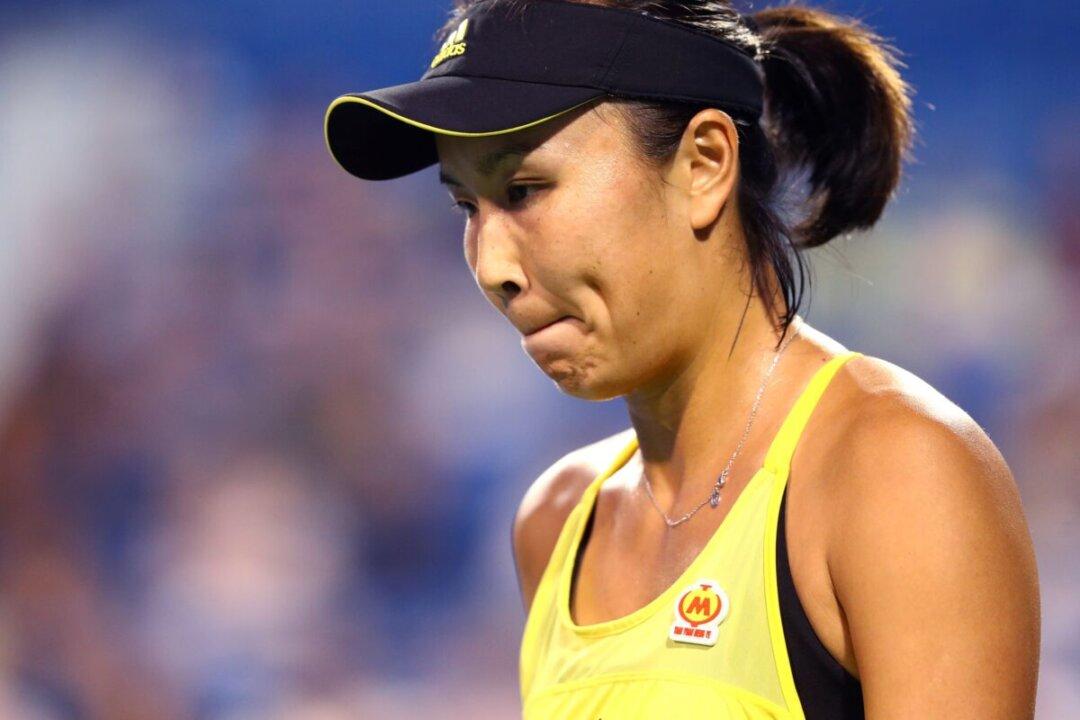Tennis Australia (TA) has again defended its decision to block fans from wearing t-shirts with slogans supporting Chinese doubles player Peng Shuai at Melbourne Park, saying the decision is to create a “safe and inclusive” environment.
The organisation has been under scrutiny after the footage made its way to social media last Friday showing a TA’s security guard confiscated a pro-Peng Shuai banner from two spectators and asked them to remove their “Where is Peng Shuai?” t-shirts.




